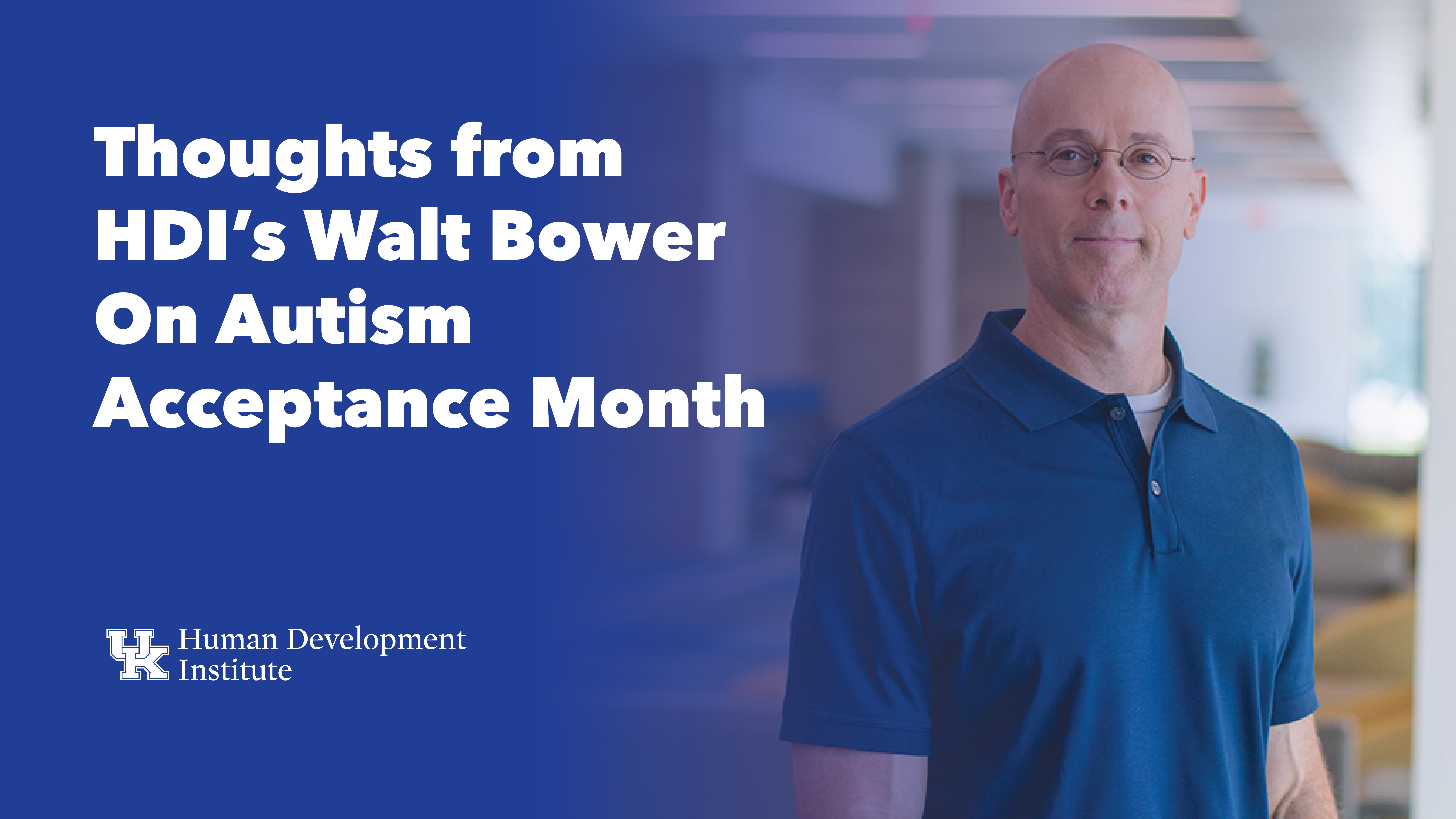For Walt Bower, Preservice Training Coordinator for HDI, there’s an important first step to take when talking about how best to support autistic people. “People need to learn what autistic people want them to know,” Bower said. “That is why I prefer to talk about autism acceptance instead of autism awareness.” Bower’s perspective falls in line with a shift that’s becoming more and more popular in how organizations and people are talking about autism. And April, which used to be called Autism Awareness Month, is consequently being reframed as Autism Acceptance Month for a lot of people.
“I think this shift reflects input from autistic individuals and other community leaders as well as our commitment to sharing how we can promote advocacy for human and civil rights for all usautistic people,” he said. And that change in language is important, Bower said. Often, those calling for awareness do so without the input of autistic people. As a result, it’s been less helpful.
“Sometimes, autism awareness campaigns, albeit well-intentioned, can make people who are not familiar with autism afraid of autistic people,” Bower said. “It has done more harm than good…It’s presented autistic people as bad, or autism as something that needs to be cured.” So if it doesn’t need to be cured, how should people approach autism?
According to Bower, a big part of it is accepting that autism isn’t abnormal. “I think we need to think about disability and autism as part of life,” Bower said. “We need to recognize disability and autism as one integral part of diversity. Autistic people can get stigmatized as just being autistic when autistic people have many different identities, as leaders, students, workers, employers, parents, family members. Autistic people have and lead rich and fulfilling lives that are shared with the people all around us.”
He also highlighted some of the models through which disability is viewed – in particular, the medical model of disability, which views disability solely through a lens of conditions that need medical intervention, a problem that must be solved, and the social model, which thinks of autism as just a part of human diversity that deserves to be accommodated. Bower also spoke of another model that he’s intrigued with that tries to find a way to incorporate elements of both models. He’s excited to see where those discussions lead and to learn more in the future. But he thinks it’s important that those discussions always seek to include a diverse range of people with disabilities, autistic people included.
“The slogan of the disability rights movement is ‘Nothing about us without us,’ which means that autistic people need to be involved whenever autism is discussed,” Bower said. “We want to make sure that autistic people are included in conversations about autism, whether those conversations are about lives of autistic people or autistic people as a whole in our society…Autistic people know the problems that autistic people face, and have a lot of ideas how to solve them.”
This article represents the opinions of the author and interviewee, not that of the University of Kentucky.
